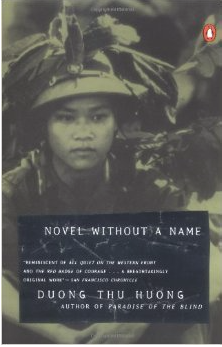I can’t understand why I haven’t read Colm Tóibín before. He’s outstanding. I admire his writing, his luminous prose. It’s not easy to say why it is so great but it is. His descriptions, the details he chooses, the settings, are so precise and conjure up a whole world.
It’s the 1950s and Ellis Lacey is living in Ireland with her mother and older sister. She wants to be an accountant but is only a shop assistant. Thanks to her sister, she can emigrate to America where she’s hired in a shop, goes to an accounting school and betters herself. Here, she meets a young Italian man and begins a relationship with him. After tragedy strikes, she has to decide whether she will stay in America or go back to Ireland. The novel has four parts. The first is set in Ireland and on the ship crossing over to America, the second and third are set in Brooklyn, the last in Ireland.
Ellis is a passive character but interesting as she’s introspective and a keen observer of what happens around her and inside of herself. I loved reading about the way she processed things that had happened to her during the day. In the beginning this passivity isn’t exactly attractive but it’s not as infuriating as it is in the last part. Ellis never speaks up, never fights for herself and in the end, she pays a high price for this behaviour. One aspect that stood out for me was the way Tóibín wrote about the experience of being an immigrant. I’ve lived abroad a few times, in some cases in places where I knew hardly anyone. Many of the feelings described, brought those experiences back.
Here’s a quote showing Ellis in the shop she’s working in Brooklyn.
The morning was full of frenzy; she did not for one moment have peace to look around her. Everyone’s voice was loud, and there were times when she thought in a flash of an early evening in October walking with her mother down by the prom in Enniscorthy, the Slaney River, glassy and full, and the smell of leaves burning from somewhere close by, and the daylight going slowly and gently. This scene kept coming to her as she filled the bag with notes and coins and women of all types approached her asking where certain items of clothing could be found or if they could return what they had bought in exchange for other merchandise, or simply wishing to purchase what they had in their hands.
Ellis may be the main character but there are numerous other characters, some who only appear briefly. They are all complex and rich in facets. One could also say that the two main settings, the eponymous Brooklyn and Ireland are treated like characters. They are described in detail, juxtaposed, compared, contrasted. Two very distinct worlds come alive between these pages.
I highly recommend Brooklyn. It’s beautiful and I can’t wait to read more of Tóibín. Just be warned – Ellis can, at times, be an infuriating character.
If you’d like to read a more in-depth review here’s Max’s take on the novel.








